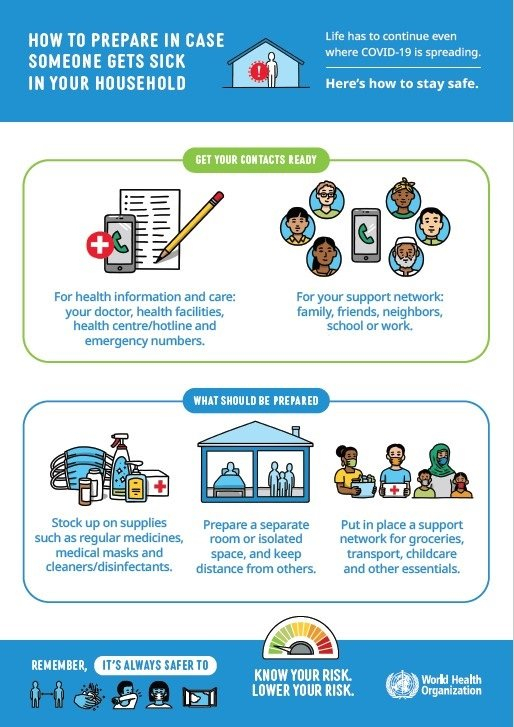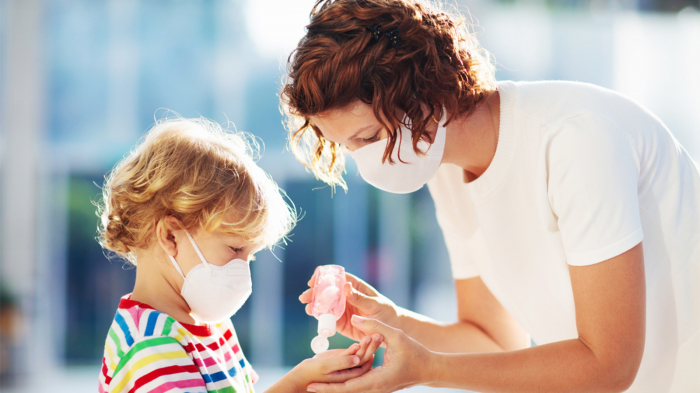- Food and water. Choose food that doesn't need to be in the refrigerator and can stay good on the shelf for a long time. Buy canned foods and juices, rice, dried beans, granola bars, peanut butter, and dry cereal. Get baby foods, if needed. If you have pets, stock up on what they need.
- Foods your family likes when sick. These might include things like soup, crackers, and fluids to stay hydrated.
Household supplies. Don't forget toilet paper, paper towels, shampoo, toothpaste, and dish soap. - Medicines. Make sure prescriptions are filled and on hand. Get over-the-counter (nonprescription) fever reducers. Your doctor can advise you on how to use them.
- A thermometer. Depending on your child's age, you might need a digital thermometer, temporal artery thermometer, or electronic ear (tympanic) thermometer.
- Cleaning supplies. If someone is sick, regularly wipe down things that get touched a lot (like doorknobs, cellphones, and handles).
- Plenty of hand soap. Using soap and water to wash hands when staying home is best. You can use hand sanitiser if soap and water aren't available. Safely store hand sanitiser and cleaning products out of reach of the kids.
- Masks. Masks are important for going out. But they can also help stop the spread of COVID-19 at home. Indoors, anyone over 2 years old who is sick should wear a mask when around others to prevent spreading the virus. Other household members should wear a mask when around the sick person.
Children under 2 years old and people who have trouble breathing should not wear a mask.

More about:
















































